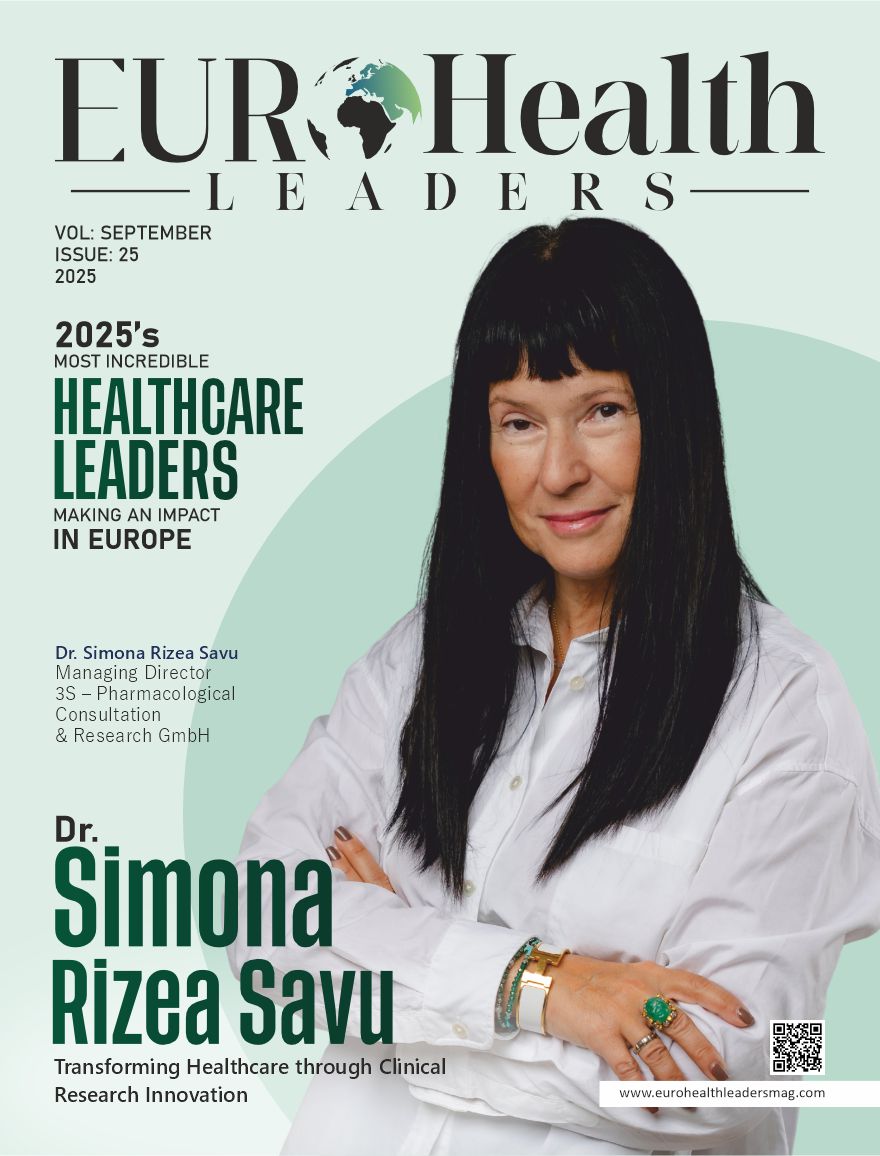2025 will prove to be a pivotal year for global health. New technologies, policy changes and socioeconomic trends are transforming the delivery and access of care across the globe. New ideas, obstacles, and their impact on future healthcare systems are the focus of this article identifying the best global health trends for 2025.
Digital Health Technologies Are Burgeoning
As the world experiences an unprecedented public health crisis, the demand for innovative and scalable digital health solutions is higher than ever before. Telemedicine, artificial intelligence (AI), and wearable medical devices are improving health outcomes and increasing access to care. AI-driven diagnostics are helping to streamline medical assessments, and wearable devices are facilitating real-time health monitoring. These developments in digital health are transforming the patient-provider relationship and improving healthcare efficiency. Welcome to 2025, where digital health topples the most notable global health trends.
Telemedicine and AI-Powered Diagnostics
Innovations in technology have led to private / public health sector partnerships which have grown exponentially. AI-powered diagnostics are revolutionizing disease detection, enabling quicker and more precise medical evaluations. Such technologies are alleviating hospital overcrowding and improving patient experiences.
Vaccine Rollout and Global Collaboration
Data until October 2023 In 2025, governments and international organizations are perfecting their pandemic preparedness frameworks. These efforts are being supplemented by advancements in mRNA vaccine technology, rapid response systems, and global immunization initiatives for disease prevention. Equ establishing an equitable distribution of vaccines (so low income nations can access life saving immunizations) remains high on the wish list. These efforts play pivotal roles in the global health landscape of 2025, informing public health approaches to the challenges ahead.
Mental Illness Awareness Week and Accessibility
Mental health is being paid greater attention to than ever before as a unique aspect of one’s holistic health. As the stigma associated with mental health conditions wanes, access to mental health services is becoming increasingly available. Governments and private sectors are putting money into teletherapy platforms, AI-driven mental health chatbots, and workplace mental wellness programs. From primary care to mental health — Delivering holistic care across countries Innovations in mental health are enhancing quality of life and access to healthcare as part of the global health trends of 2025.
Initiatives for Mental Health in the Workplace
Companies are investing in employee wellness programs that include mental health support and work-life balance promotion to improve productivity and quality of life.
Genomics and Personalized Medicine: A New Approach
Genomics and personalized medicine are changing what we do for and how we prevent disease. The field of precision medicine is decreasing adverse drug reactions and enhancing therapeutic results by customizing treatments based on an individual’s genetic profile. Genetic screening and CRISPR-based gene editing at this point are making personalized interventions for chronic diseases, rare inherited genetic disorders, and cancer treatments possible (in 2025). These breakthroughs are part and parcel of global health developments in 2025, transforming how patients are treated and how disease is managed.
Tackling Non-Communicable Diseases (NCDs)
Non-communicable diseases like diabetes, cardiovascular diseases, and cancer are on the rise. Proactive measures by governments and healthcare organizations. As NCDs become a major burden on national economies, more governments and healthcare systems are working towards stemming this epidemic through lifestyle modifications, early screenings and, in particular, leveraging digitalization in health. With the help of AI-driven predictive analytics, they develop early detection systems, they also work on innovative therapies that help to manage the disease better. One of them is the global war against NCDs, clearly demonstrating how the trends of global health in 2025 go hand-in-hand with the concept of prevention; it paves the way for a myriad of novel approaches, in particular technology-enabled healthcare services.
The Development of Universal Health Coverage (UHC)
Universal health coverage is still a cornerstone of global health policy. Modality: In 2025, more countries are prioritizing healthcare accessibility through policy reforms and innovative funding mechanisms. These partnerships enable the expansion of healthcare services to underserved populations. Blockchain and digital health records are sharpening the transparency of healthcare, cutting some of its inefficiencies, and securing patient data better. These innovations are made possible by trends in global health 2025, when all people will have the potential to inhabit a sustainable world with equal access to care.
Climate Change and Its Effects on Global Health
A Key Driver of Global Health by 2025
Climate change is becoming one of the most significant global determinants of health outcomes. Increasing temperatures, extreme weather events and environmental degradation are magnifying health risks. Now, let’s fast forward to 2025 and the healthcare industry is now focusing on climate-smart practices, plans for resilient health systems, and minimizing carbon footprints. Policy-led initiatives are tackling climate-change related air pollution, vector-borne diseases and food security issues. In 2025, climate change adaptation in healthcare will be one of the biggest trends impacting global health.
Sustainable Healthcare Infrastructure
Because of this, hospitals are compliant with green building practices, use less energy, and use alternative energies in order to make their carbon footprint smaller.
Antimicrobial Resistance (AMR) Strategies of the Future
The threat antimicrobial resistance poses to global health security is substantial. Excessive and improper use of antibiotics are conducive to the emergence of drug-resistant pathogens. To combat the growing prevalence of AMR, global health organizations are introducing stringent regulations for antibiotic prescriptions, leading to antimicrobial stewardship programs, and funding the informational campaign for developing new antibiotics. Cutting-edge rapid diagnostic tools_enable[Detect resistant infections early] Antimicrobial Resistance (AMR)Mobilisation against AMR is one of the hallmark global health trends in 2025, informing infection control strategies from Jakarta to New York.
AI in Healthcare: The Impact of Artificial Intelligence
AI is revolutionising healthcare by improving diagnosis, making processes more efficient and enhancing patient care. By 2025, artificial intelligence (AI)-assisted robotic surgeries, automated analysis of medical imaging, and predictive analytics are all used to maximize clinical results. AI algorithms are even helping drug discovery,further speeding up the creation of new therapeutics. AI is being integrated into the healthcare sector to improve decision-making, decrease errors, and streamline operations. 3. AI And Its Proven Impact As A Game Changer In Medicine: AI And Its Game-Changing Statfactorship As Global Health Trends 2025 Which Will Still Be In The Trends In 2025–AI Based Technologies On The Top, Then Comes Data Analysis, Predictive And Prescriptive Analytics, Personalized Medicine, And So On…Given Programs For AI Acts As Well-Designed Models And Expert Programs.
AI in Drug Development
Platforms powered by artificial intelligence are speeding up drug discovery and slashing the time and expense needed to bring new treatments to market.
4667: Health Equity and Social Determinants of Health
Ensuring health equity is a global priority, determining health agenda and outcomes with significant implications[get nursing essay help online. Public health is influenced by economic inequalities, availability of education, housing, and nutritious food. Key determinants of health inequalities are addressed by policies in 2025 ensuring that marginalized communities are able to receive the healthcare resources they need. Healthcare disparity is being addressed through community-based health programs and the introduction of digital health interventions to definitely impact lives in underserved areas. The implications of global health trends, such as addressing the health inequities of 2025, are critical for a sustainable and sustainable healthcare approach in 2025.
Decentralized Health (Community-Led Health initiatives)
Grassroots health organizations are addressing healthcare gaps in remote and underserved areas by establishing medical resources, nutrition programs, and education.
Conclusion
In 2025, the world of health is characterized by technological innovation, policy shifts, and targetted interventions. Data-driven, personalized medicine and climate-conscious health care practices are just some of the developments that will influence the future of global health. It will take a collaborative effort by governments, healthcare professionals and technology leaders to address challenges like antimicrobial resistance, non-communicable diseases and mental health disparities. With all of these global health trends in 2025 being interconnected, each brings the promise of a more resilient, accessible, and efficient healthcare system across the world.









